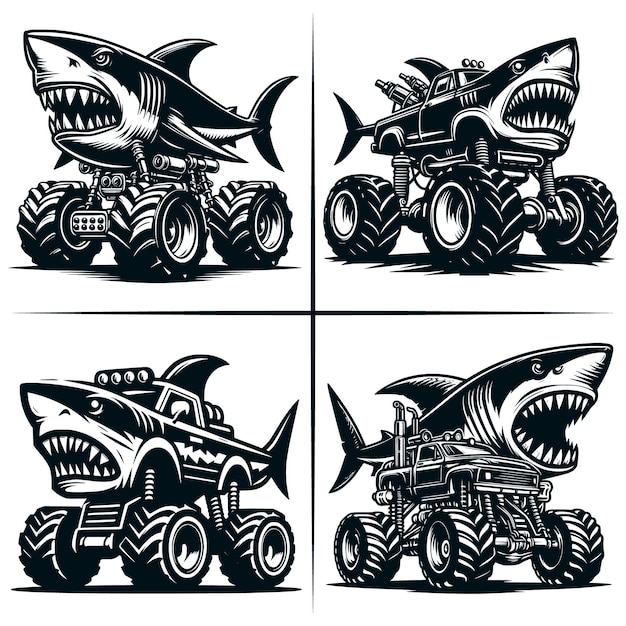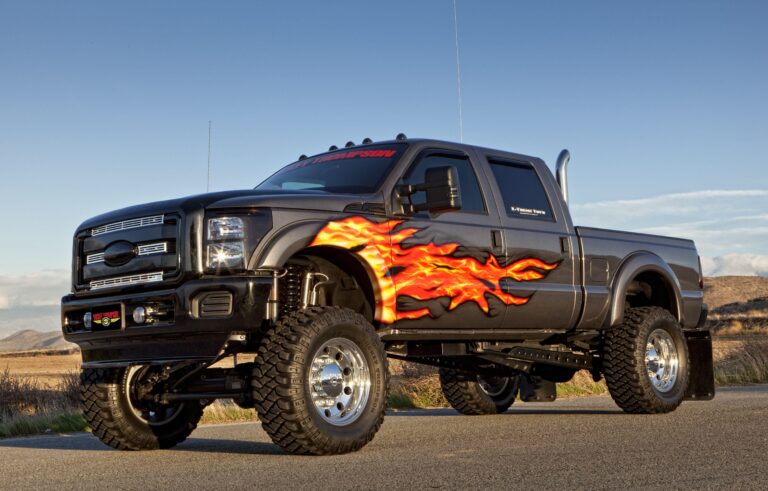3/4 Ton Regular Cab Trucks For Sale: The Unsung Workhorse
3/4 Ton Regular Cab Trucks For Sale: The Unsung Workhorse cars.truckstrend.com
In the world of heavy-duty pickups, the 3/4 ton regular cab truck stands as a testament to pure, unadulterated utility. Stripped of the extended passenger space and often the luxury amenities found in their larger crew cab counterparts, these vehicles are purpose-built for one thing: work. For businesses, contractors, farmers, or even individual owners who prioritize raw capability, cost-effectiveness, and maneuverability over passenger comfort, a 3/4 ton regular cab truck represents an intelligent and often indispensable investment. This comprehensive guide will delve into what makes these trucks unique, their benefits, critical considerations for purchase, and where to find your next robust work partner.
Understanding the 3/4 Ton Regular Cab Truck
3/4 Ton Regular Cab Trucks For Sale: The Unsung Workhorse
Before diving into the market, it’s crucial to grasp what defines this specific truck configuration.
- What "3/4 Ton" Means: The term "3/4 ton" (or 250/2500 series) is a historical classification referring to a truck’s approximate payload capacity. While modern 3/4 ton trucks can carry significantly more than 1,500 pounds (often exceeding 3,000-4,000 pounds of payload), the nomenclature persists. It signifies a class of heavy-duty trucks built with stronger frames, suspension components, axles, and braking systems than their half-ton (150/1500 series) counterparts, enabling them to handle heavier loads and more substantial towing duties.
- What "Regular Cab" Means: A regular cab truck features a single row of seating, typically for two or three passengers, and two doors. There’s no extended or crew cab section behind the front seats, meaning all available space is dedicated to the truck bed and powertrain. This configuration results in a shorter wheelbase and overall length compared to multi-cab variants of the same heavy-duty platform.
- Common Models: The market for 3/4 ton regular cab trucks is dominated by the "Big Three" American manufacturers:
- Ford F-250: Part of Ford’s Super Duty lineup, known for its robust build and powerful engine options.
- Ram 2500: Renowned for its Cummins diesel engine option and comfortable ride, even in heavy-duty applications.
- Chevrolet Silverado 2500HD / GMC Sierra 2500HD: GM’s offerings, sharing platforms and often distinguished by styling and trim levels, both known for their Duramax diesel and strong gasoline engines.

This combination of 3/4 ton capability and a regular cab body creates a focused tool: a highly capable truck that’s relatively nimble, less expensive, and purely functional.
Key Benefits of Choosing a 3/4 Ton Regular Cab
Opting for a 3/4 ton regular cab truck offers several distinct advantages, particularly for those with specific operational needs:
- Unmatched Workhorse Capability: This is the primary draw. With significantly higher payload and towing capacities than half-ton trucks, 3/4 tons are engineered to handle demanding tasks. They are often equipped for gooseneck or fifth-wheel towing, making them ideal for hauling large trailers, heavy equipment, or substantial amounts of materials like gravel, lumber, or tools.
- Cost-Effectiveness: Both new and used, regular cab 3/4 ton trucks are generally more affordable than their extended or crew cab equivalents. Less material, simpler interiors, and a focus on utility often translate to a lower sticker price. This makes them an attractive option for budget-conscious buyers or fleets looking to maximize their investment per vehicle.
- Superior Maneuverability: The shorter wheelbase of a regular cab significantly improves its turning radius and overall agility. This is a massive advantage on tight job sites, crowded urban streets, or when navigating challenging off-road terrain where longer trucks might struggle. Parking is also considerably easier.
- Durability and Longevity: Built to withstand heavy loads and continuous use, 3/4 ton trucks feature heavy-duty components throughout their chassis, drivetrain, and suspension. This inherent robustness often translates to a longer service life and better resistance to wear and tear under demanding conditions, provided they are properly maintained.
- Simplicity and Reliability: Without the complex wiring, climate control systems, and additional seating mechanisms found in larger cabs, regular cab trucks tend to have fewer potential points of failure. This simplicity can contribute to greater reliability and potentially lower long-term maintenance costs for non-engine/transmission related issues.
Important Considerations Before Buying
Purchasing a 3/4 ton regular cab truck requires careful thought to ensure you get the right vehicle for your needs.
- Intended Use and Capacity Requirements: Be precise about what you’ll be doing with the truck. Are you towing a specific weight regularly? Hauling certain materials? Ensure the truck’s Gross Vehicle Weight Rating (GVWR), Gross Combined Vehicle Weight Rating (GCVWR), payload, and towing capacities meet or exceed your maximum anticipated needs. Always check the specific truck’s door jamb sticker for actual capacities, as they vary by configuration.
- Engine Choice: Gas vs. Diesel:
- Gasoline Engines: Typically V8s, they offer a lower upfront cost and generally cheaper maintenance. They are excellent for occasional heavy loads, shorter hauls, and when towing capacity isn’t consistently pushed to the limit.
- Diesel Engines: Known for their immense torque, superior towing capabilities, and better fuel economy when under heavy load. They also tend to have a longer lifespan. However, diesel trucks come with a higher purchase price, more expensive maintenance (e.g., fuel filters, DEF systems), and potentially higher repair costs if issues arise. If you’re towing heavy frequently or for long distances, diesel is often the better choice.
- Drivetrain: 2WD vs. 4WD:
- 2WD (Two-Wheel Drive): More affordable, slightly better fuel economy, and simpler maintenance. Suitable for paved roads and light-duty off-road use.
- 4WD (Four-Wheel Drive): Essential for off-road job sites, snowy or icy conditions, and navigating muddy terrains. It adds complexity, weight, and cost but provides crucial traction when needed.
- Condition (Especially for Used Trucks):
- Rust: Thoroughly inspect the frame, cab mounts, bed, and suspension components for rust, particularly in regions that use road salt. Surface rust is often manageable, but structural rust is a serious red flag.
- Maintenance Records: Request detailed service history. A well-maintained truck, even with high mileage, can be a better buy than a low-mileage truck with neglected maintenance.
- Previous Use: Was it a personal vehicle, a fleet truck, or a dedicated workhorse? Fleet trucks often have consistent maintenance but might show more wear and tear.
- Tires, Brakes, Suspension: Check for even tire wear, firm brake pedal feel, and listen for unusual noises from the suspension.
Where to Find 3/4 Ton Regular Cab Trucks For Sale
The search for your ideal truck can begin in several places:
- Dealerships: Both new and used car dealerships offer a range of options. New trucks come with warranties and the latest features. Used trucks from dealerships might offer certified pre-owned programs, financing options, and a certain level of vetting.
- Online Marketplaces: Websites like AutoTrader, Cars.com, eBay Motors, Craigslist, and Facebook Marketplace host a vast number of listings from both private sellers and smaller dealerships. These platforms offer a wide selection but require more diligence from the buyer.
- Private Sellers: Buying directly from a private owner can often yield lower prices as there’s no dealership overhead. However, it means buying "as-is" with no warranty, making a thorough inspection and VIN check even more critical.
- Auctions: Government, fleet, and public auctions can offer significant savings, but vehicles are typically sold "as-is" with limited opportunity for inspection. This option is best for experienced buyers or those with a trusted mechanic on standby.
- Specialized Truck Dealers: Some dealerships focus specifically on commercial and work trucks. They might have a better selection of regular cab heavy-duty models and understand the specific needs of work truck buyers.
Tips for a Successful Purchase
- Set a Realistic Budget: Beyond the purchase price, factor in insurance, fuel costs (especially for diesel), potential repairs, and ongoing maintenance.
- Research Thoroughly: Once you’ve identified potential models, research common issues for specific model years, recall histories, and owner reviews.
- Inspect Meticulously: Don’t just kick the tires. Conduct a comprehensive visual inspection, check all fluids, test all lights and features, and perform a thorough test drive. Listen for unusual noises, check for vibrations, and assess steering and braking.
- Get a Pre-Purchase Inspection (PPI): This is perhaps the single most important step for a used truck. Have an independent, trusted mechanic inspect the vehicle before you buy it. They can identify hidden problems that you might miss.
- Obtain a Vehicle History Report (VIN Check): Services like CarFax or AutoCheck can reveal accidents, flood damage, salvage titles, previous owners, and service history, providing crucial insights into the truck’s past.
- Negotiate Smartly: Be prepared to negotiate the price. Having done your research and obtained a PPI report, you’ll be in a stronger position.
- Understand Financing and Insurance: Get pre-approved for a loan if needed, and obtain insurance quotes before finalizing the purchase.
Potential Challenges and Solutions
- Finding Specific Configurations: Regular cabs, especially with certain engine/drivetrain combinations, are less common than crew cabs.
- Solution: Broaden your search radius, utilize online filters, and be patient. Specialized truck dealers might have a better inventory.
- High Mileage: Work trucks often accumulate high mileage quickly.
- Solution: Don’t automatically dismiss high-mileage trucks. Focus on comprehensive maintenance records and a thorough PPI. A well-maintained high-mileage truck can be a better value than a low-mileage neglected one.
- Wear and Tear: Work trucks might show more cosmetic wear (dents, scratches, interior stains) than personal-use vehicles.
- Solution: Prioritize mechanical soundness over cosmetic perfection. Factor in the cost of any necessary reconditioning if aesthetics are important to you.
- Rust Issues: Especially in colder climates where road salt is used, rust can be a significant problem.
- Solution: A meticulous inspection of the frame, body panels, and brake lines is essential. Pay attention to the underside of the bed and cab.
- Higher Diesel Maintenance Costs: While powerful, diesel engines typically have higher maintenance costs for parts and specialized labor.
- Solution: Budget accordingly for these expenses. Ensure the previous owner followed the manufacturer’s recommended maintenance schedule, especially for fuel system components and emissions equipment.
Price Table: Estimated Costs for 3/4 Ton Regular Cab Trucks For Sale
| Make/Model (Example) | Year Range (Used) | Condition | Engine Type | Drivetrain | Typical Price Range (USD) | Notes |
|---|---|---|---|---|---|---|
| Used Models (2-7 Years Old) | ||||||
| Ford F-250 XL Reg Cab | 2017-2022 | Good | Gas (V8) | 2WD | $25,000 – $38,000 | Reliable workhorse, lower operating cost |
| Ford F-250 XL/XLT Reg Cab | 2017-2022 | Good | Diesel (Power Stroke) | 4WD | $38,000 – $55,000 | Strong towing, higher upfront/maintenance cost |
| Ram 2500 Tradesman Reg Cab | 2017-2022 | Good | Gas (V8) | 2WD | $26,000 – $39,000 | Good value, comfortable ride for a work truck |
| Ram 2500 Tradesman Reg Cab | 2017-2022 | Good | Diesel (Cummins) | 4WD | $39,000 – $58,000 | Legendary engine, excellent for heavy towing |
| Chevy Silverado 2500HD Reg Cab | 2017-2022 | Good | Gas (V8) | 2WD | $24,000 – $37,000 | Balanced performance, common for fleets |
| Chevy Silverado 2500HD Reg Cab | 2017-2022 | Good | Diesel (Duramax) | 4WD | $37,000 – $54,000 | Powerful, paired with robust Allison transmission |
| New Models (Current Year) | ||||||
| Ford F-250 XL Reg Cab | 2024 | New | Gas (V8) | 2WD | $45,000 – $55,000 | Base model, before options & destination fees |
| Ram 2500 Tradesman Reg Cab | 2024 | New | Gas (V8) | 2WD | $46,000 – $56,000 | Competitively priced entry-level heavy duty |
| Chevy Silverado 2500HD WT Reg Cab | 2024 | New | Gas (V8) | 2WD | $44,000 – $54,000 | Work Truck trim, focused on essential features |
Disclaimer: Prices are highly variable and depend on factors such as mileage, specific trim level, optional equipment, regional market demand, and overall condition. These figures are general estimates and should be used as a guide only.
Frequently Asked Questions (FAQ)
Q1: What does "3/4 ton" actually mean in terms of capacity?
A: "3/4 ton" is a historical classification. Modern 3/4 ton trucks can carry significantly more than 1,500 lbs (0.75 tons) of payload. Their actual payload capacity typically ranges from 3,000 to over 4,000 lbs, depending on the specific configuration (engine, drivetrain, options). Always check the specific truck’s door jamb sticker for precise payload and towing figures.
Q2: Why choose a regular cab over an extended or crew cab?
A: The main reasons are cost, maneuverability, and a pure focus on work. Regular cabs are typically less expensive, have a shorter wheelbase for better turning in tight spaces, and offer maximum bed length for a given overall vehicle length, making them ideal for tools, materials, and towing.
Q3: Is a gas or diesel engine better for a 3/4 ton truck?
A: It depends on your primary use. Gas engines are cheaper to buy and maintain, making them suitable for occasional heavy hauling and shorter distances. Diesel engines offer superior torque for heavy and frequent towing, better fuel economy when under load, and often a longer lifespan, but come with a higher purchase price and more expensive maintenance.
Q4: Are regular cab 3/4 ton trucks hard to find on the market?
A: They are less common than crew cab heavy-duty trucks, as consumer demand has shifted towards larger cabins. However, they are still produced and available, especially in base "work truck" trims. You might need to expand your search geographically or be patient to find the exact configuration you desire.
Q5: What’s the most important thing to check when buying a used 3/4 ton regular cab truck?
A: Two critical things: a comprehensive pre-purchase inspection (PPI) by an independent mechanic and a thorough review of the vehicle’s maintenance records. These will reveal the truck’s true mechanical condition and how well it has been cared for.
Q6: Can I use a 3/4 ton regular cab truck as a daily driver?
A: Yes, you can, but be aware of the trade-offs. The ride quality will typically be stiffer than a half-ton or a passenger car due to the heavy-duty suspension, and fuel economy will be lower. They are designed for work, not necessarily for passenger comfort or city commuting efficiency.
Q7: What about insurance costs for a 3/4 ton truck?
A: Insurance for 3/4 ton trucks can sometimes be higher than for half-ton trucks due to their higher purchase price, potentially more expensive parts and labor for repairs, and the assumption of commercial or heavy-duty use. It’s always best to get an insurance quote before purchasing.
Conclusion
The 3/4 ton regular cab truck remains an indispensable asset for those who value capability, durability, and efficiency above all else. It’s a no-nonsense workhorse designed to tackle the toughest jobs without unnecessary frills. By understanding its unique advantages, carefully considering your specific needs, and conducting thorough research and inspection, you can confidently navigate the market for 3/4 ton regular cab trucks for sale. Whether new or used, finding the right model means investing in a reliable partner that will serve your demanding requirements for years to come, proving that sometimes, less truly is more.




